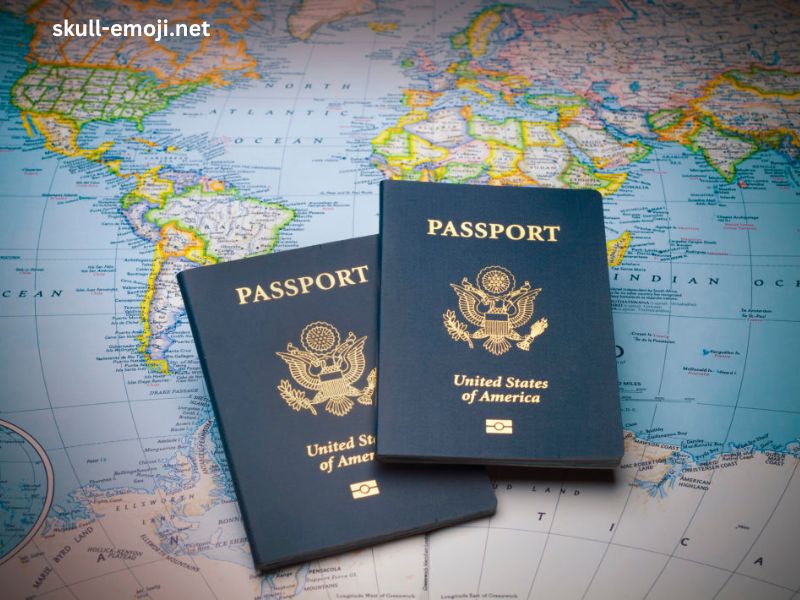Traveling abroad for business, leisure, or diplomatic purposes can be an enriching experience, but it also exposes individuals to potential risks, especially when dealing with sensitive or classified information. For individuals working in government, military, or private sectors with access to sensitive data, traveling to foreign countries can pose significant security threats, such as espionage, cyber-attacks, or even personal safety concerns. To mitigate these risks, defensive foreign travel briefings are often required, especially for those involved in national security, defense, intelligence, or industries critical to a nation’s infrastructure.
This article explores the importance of defensive foreign travel briefings, the frequency of these briefings, and why they are a crucial component of travel protocols for certain individuals. By the end of the article, readers will have a comprehensive understanding of how often they must receive these briefings, what they entail, and how they can protect themselves while traveling abroad.
What Is a Defensive Foreign Travel Briefing?
A defensive foreign travel briefing is a security measure provided to individuals who have access to sensitive, classified, or otherwise important information, to prepare them for travel to foreign countries. These briefings are designed to raise awareness of potential risks associated with international travel, particularly in nations that may engage in espionage or pose a threat to national security.
The briefing typically covers a range of topics, including:
- Counterintelligence threats: Providing guidance on how foreign intelligence services may attempt to gather information.
- Cybersecurity risks: Highlighting potential cyber vulnerabilities, such as hacking or unauthorized access to electronic devices.
- Personal safety: Offering tips to safeguard personal security and avoid being targeted by foreign governments, criminals, or adversaries.
- Cultural awareness: Ensuring the traveler is familiar with local laws, customs, and norms, which could have security implications.
- Travel restrictions: Detailing specific restrictions or advisories that apply to the country or region of travel.
Individuals receiving these briefings are usually advised on best practices to mitigate risks, such as avoiding sensitive discussions in public places, securing electronic devices, and reporting suspicious activities upon their return.
Who Needs a Defensive Foreign Travel Briefing?
Not everyone is required to receive a defensive foreign travel briefing. The need for these briefings is typically determined by the nature of a person’s work, their access to sensitive information, and the countries they are traveling to.
Common groups that may require these briefings include:
- Government officials: Those who have access to classified or sensitive information, including employees in defense, intelligence, and diplomatic services.
- Military personnel: Active-duty members of the military, particularly those working in intelligence or defense-related roles.
- Contractors and consultants: Individuals working for government agencies or companies involved in national security, critical infrastructure, or defense.
- Private sector employees: Executives and employees in industries such as technology, finance, or energy, where sensitive information could be valuable to foreign entities.
- Academics and researchers: Those involved in research that may have defense, technology, or security implications.
The requirement for a defensive foreign travel briefing is often dictated by the destination of the travel. High-risk countries, where espionage or cyber threats are more prevalent, typically necessitate these briefings.
How Often Must You Receive a Defensive Foreign Travel Briefing?
The frequency of defensive foreign travel briefings depends on several factors, including:
- The organization’s policies: Each organization may have different protocols regarding how often briefings are required. Some organizations may require a briefing before each foreign trip, while others may require them annually or based on the specific countries being visited.
- The destination: If you are traveling to a high-risk country, you may be required to receive a briefing for every trip to that country. Conversely, for low-risk destinations, the requirement may be less frequent.
- The individual’s role: Individuals in highly sensitive positions, such as those with top-secret security clearances, may be required to receive briefings more often than those with less sensitive roles.
- Changes in global security conditions: If there are significant changes in the security landscape of a particular country or region, organizations may update their briefing requirements to reflect new threats.
Pre-Travel Briefing (Before Every Trip)
In many cases, a defensive foreign travel briefing is required before each trip to a foreign country, particularly when traveling to a high-risk region. This pre-travel briefing is designed to provide updated information on any new threats, political developments, or risks specific to the country in question.
For example, if an employee is traveling to a country where espionage activity is known to occur frequently, the briefing will focus on how to avoid common traps used by foreign intelligence services. Similarly, if cyber-attacks have become more prevalent in a certain region, the briefing will include tips on securing electronic devices and avoiding public Wi-Fi networks.
Annual or Periodic Briefings
In some organizations, particularly those with frequent international travel, defensive foreign travel briefings may be conducted on an annual or periodic basis. This is more common in situations where the traveler visits multiple countries regularly, and where the overall threat level remains relatively constant.
Annual or periodic briefings provide an opportunity to refresh individuals on best practices and to address any new threats that may have emerged since their last briefing. However, even if annual briefings are the norm, travelers may still be required to attend additional briefings for high-risk destinations or during times of heightened security concerns.
Post-Travel Debriefing
In addition to pre-travel briefings, some organizations require post-travel debriefings. These debriefings are used to assess whether the traveler encountered any suspicious behavior, unusual requests for information, or security incidents during their trip. The traveler may also be asked to provide feedback on their experiences and report any potential threats they observed.
The post-travel debriefing serves two purposes: it ensures that any potential security breaches are identified and addressed, and it allows the organization to gather intelligence that may be useful for future travelers.
Why Defensive Foreign Travel Briefings Are Important
There are several reasons why defensive foreign travel briefings are important for individuals who have access to sensitive information or are traveling to high-risk destinations:
1. Protection Against Espionage
Many foreign governments actively seek to gather information from travelers who work in industries related to national security, technology, defense, or other critical sectors. Travelers may be targeted for surveillance, approached by foreign intelligence agents, or subjected to attempts to steal sensitive data. Defensive foreign travel briefings help individuals recognize these threats and provide strategies to avoid becoming a target.
2. Cybersecurity Awareness
With the growing prevalence of cyber-attacks, travelers are often vulnerable to hacking attempts, especially when using electronic devices in foreign countries. A defensive travel briefing offers valuable advice on protecting devices, securing communications, and preventing unauthorized access to sensitive information.
3. Personal Safety
In addition to the risks of espionage and cyber threats, travelers may face physical safety risks, such as kidnapping, robbery, or harassment. Defensive foreign travel briefings provide guidance on how to stay safe in unfamiliar environments, avoid dangerous areas, and recognize signs of potential threats.
4. Compliance with Organizational Policies
Many organizations, particularly those in government and defense sectors, have strict policies regarding foreign travel. Employees are required to comply with these policies, and failure to attend mandatory briefings could result in disciplinary action or denial of travel approval. Defensive foreign travel briefings ensure that employees are fully aware of their responsibilities and are equipped to follow organizational protocols.
5. Cultural Sensitivity and Legal Awareness
Understanding the culture, laws, and customs of a foreign country is essential for avoiding misunderstandings and legal issues. A defensive foreign travel briefing often includes information on local customs and regulations that may impact the traveler’s behavior or safety. This knowledge is especially important in countries with strict legal codes or where cultural differences could lead to unintended conflicts.
Conclusion
Defensive foreign travel briefings are a critical security measure for individuals who travel abroad and have access to sensitive or classified information. These briefings prepare travelers for the unique risks associated with international travel, including espionage, cyber-attacks, and personal safety threats.
The frequency of these briefings varies depending on organizational policies, the traveler’s destination, and their role. In many cases, travelers may be required to attend a briefing before each trip, especially to high-risk countries, while others may receive briefings on an annual or periodic basis.
Ultimately, defensive foreign travel briefings serve as a vital tool in safeguarding national security, protecting sensitive information, and ensuring the safety of travelers in an increasingly complex global landscape. Travelers who receive these briefings are better equipped to recognize potential threats, avoid security risks, and comply with organizational policies, making these briefings an essential component of responsible foreign travel.



